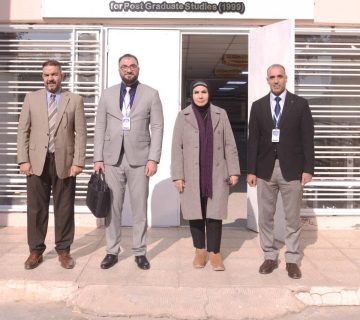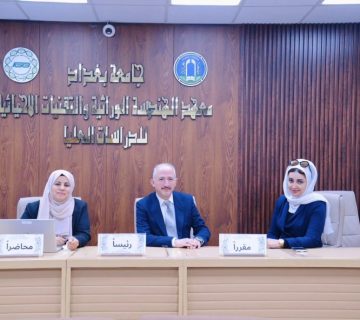The Institute of Genetic Engineering and Biotechnology for Postgraduate Studies/University of Baghdad discussed the report of the postgraduate diploma student “Huda Aziz Jabbar” entitled: “The most dangerous germs to human health” under the supervision of the lecturer Dr. Wassan Abdul Razzaq Gharbi.
The report aimed to study the emergence and spread of superbugs, or multidrug-resistant organisms, as they pose a major threat to global public health.
The report showed that superbugs, which are characterized by their resistance to many antimicrobial agents, make traditional treatments ineffective and contribute to high rates of infection and death worldwide. Mechanisms of microbial evolution, including genetic mutations, horizontal gene transfer, and selective pressure, are examined to clarify the development and spread of resistance.
The study revealed that a detailed analysis of biofilms reveals the challenges in treating infections within protective microbial communities, while environmental factors, such as pharmaceutical wastewater, act as reservoirs for antibiotic-resistant genes.
The study recommended that phage therapy and the development of new antibiotics are essential components of a comprehensive response to antimicrobial resistance. In addition, advances in diagnostic methods, especially molecular techniques, are emphasized for their role in the rapid identification of pathogens and the management of their outbreaks.










